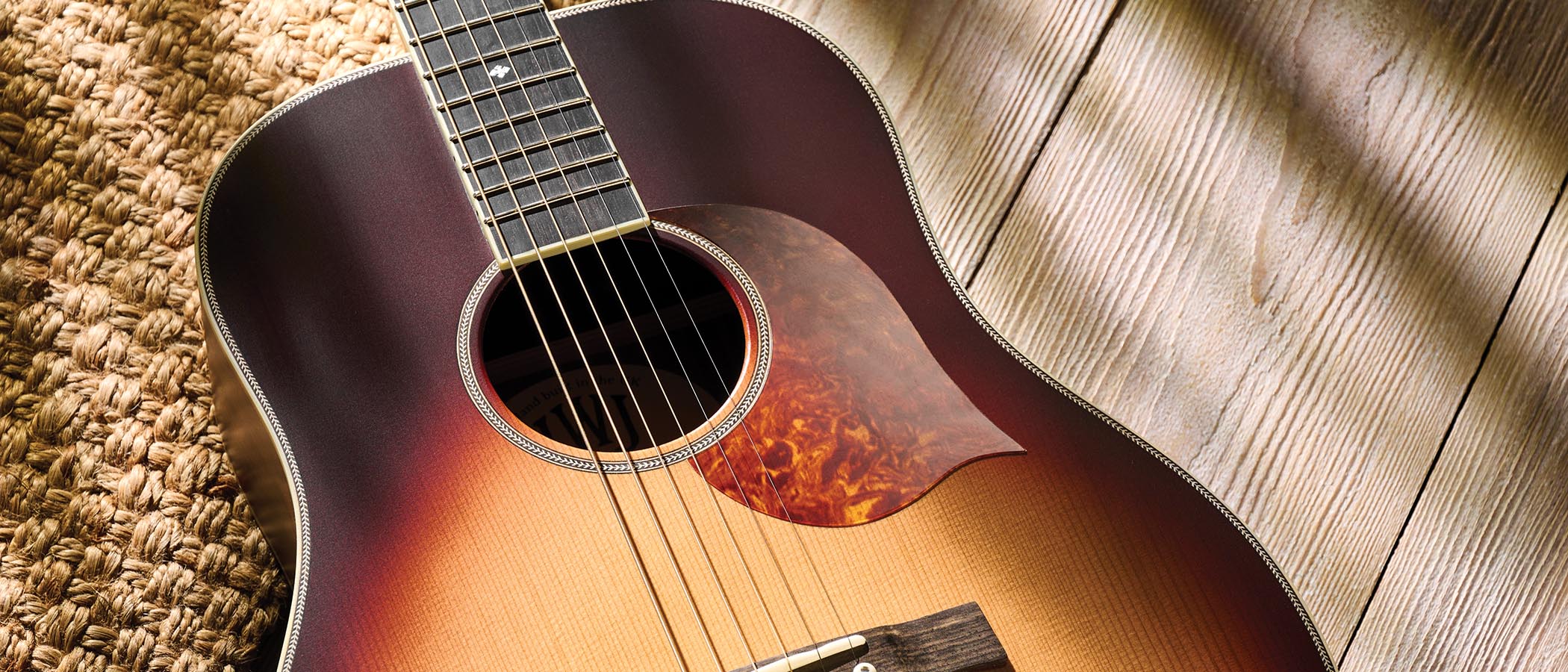Best Boss pedals: Give your playing a fresh lick with our top Boss pedal picks
If you're searching for the boss of Boss pedals we've got everything you need to take your sound to the next level
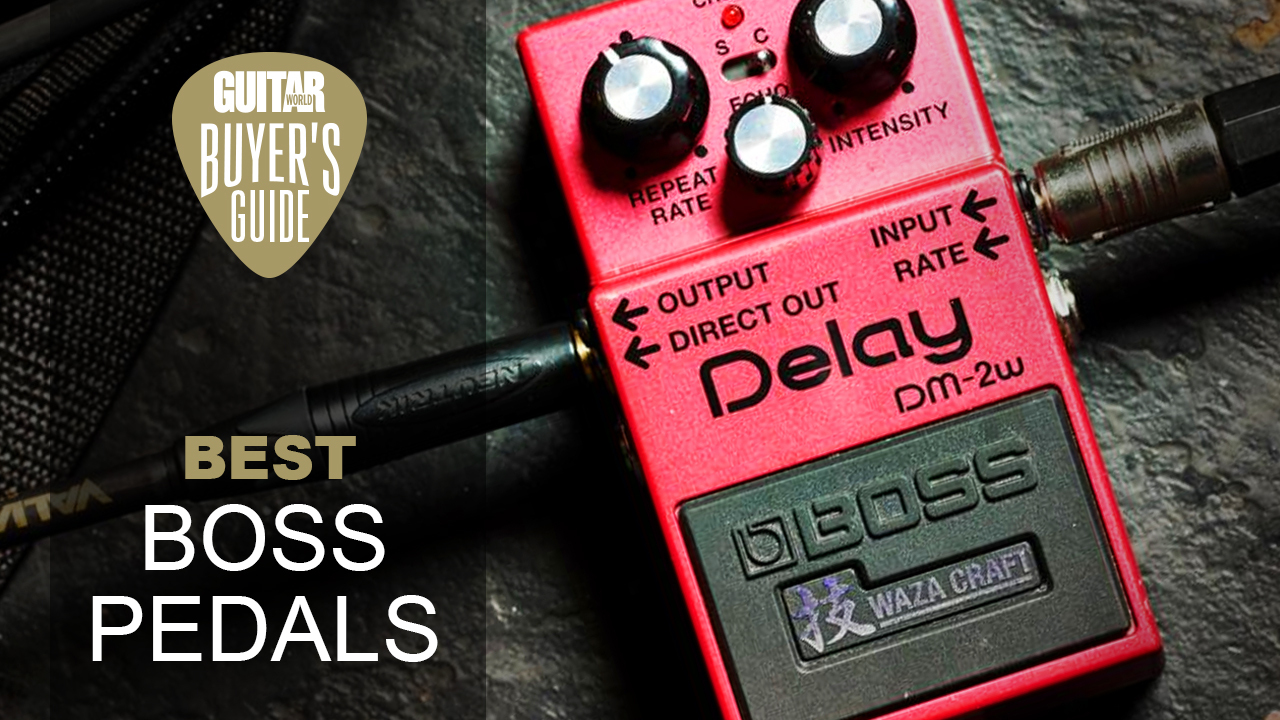
All the latest guitar news, interviews, lessons, reviews, deals and more, direct to your inbox!
You are now subscribed
Your newsletter sign-up was successful
Since launching their first compact pedal in the 1970s, Boss have been the pedal maker to beat. Though in some circles they're seen as boring, or middle-of-the-road, they're always at the forefront of guitar effects technology. In this guide to the best Boss pedals, we'll take you through the essential Boss pedals you should try in the current line-up. Though there are dozens of discontinued pedals you should also hear, we're only going to cover current pedals and reissues.
In this guide, we're going to be talking about the iconic compact stompbox pedals on which Boss have built their reputation. Though their multi-fx and double footswitch pedals are cool, that can wait for a different rundown.
Best Boss pedals: Guitar World’s choice
In terms of totally unique Boss pedals, the Boss SL-2 Slicer is hard to top. Based on the sought after discontinued dual-footswitch SL-20, the new compact Slicer the same functionality in a smaller package, and even has MIDI control via TRS cable.
For something that's more useful to a wider range of players, the Boss DC-2W Dimension C is a unique double-BBD chorus pedal. It works for many genres as well as being useful for both guitar and other sound sources like keyboards.
Finally, for something with the broadest possible appeal, the Boss Blues Driver has remained enduringly popular as a gain stage for a reason. It sounds good, is intuitive, and can work well both as a stand-alone drive, and as a tool to push a tube amplifier into powerful saturation.
Best Boss pedals: Product guide & reviews
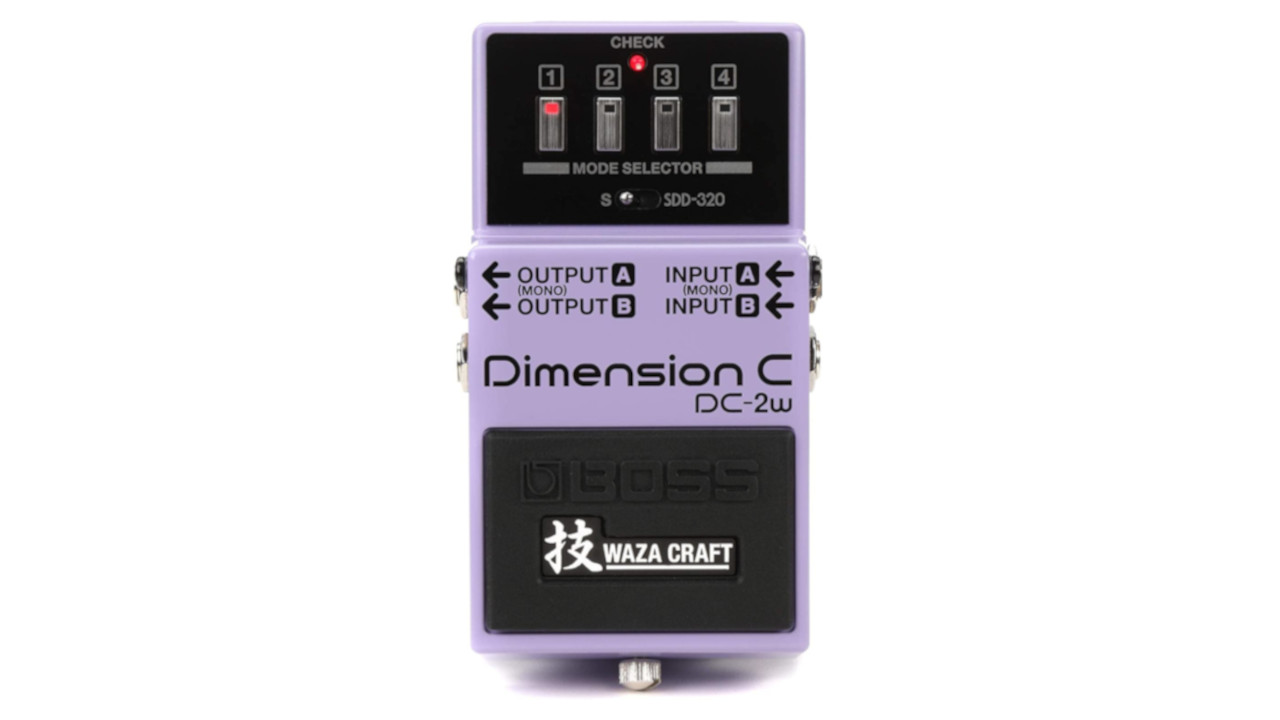
1. Boss DC-2W Dimension C
Our expert review:
Specifications
Reasons to buy
Reasons to avoid
Though it has only four switches on the front panel and no continuous range knobs, the DC-2 can be forgiven this overconfidence. Even without controls for complex tone shaping, one of its four stock modes is usually perfect for any situation.
On the face of it, the DC-2 is simply a stereo chorus, but it's driven by two BBD circuits, resulting in a rich and unique tone. The circuit is based on the SDD-320 rack unit, which became a studio mainstay. This saw it sought after by shoegaze and new-wave guitarists before its eventual reissue.
Read the full Boss DC-2W Dimension C review
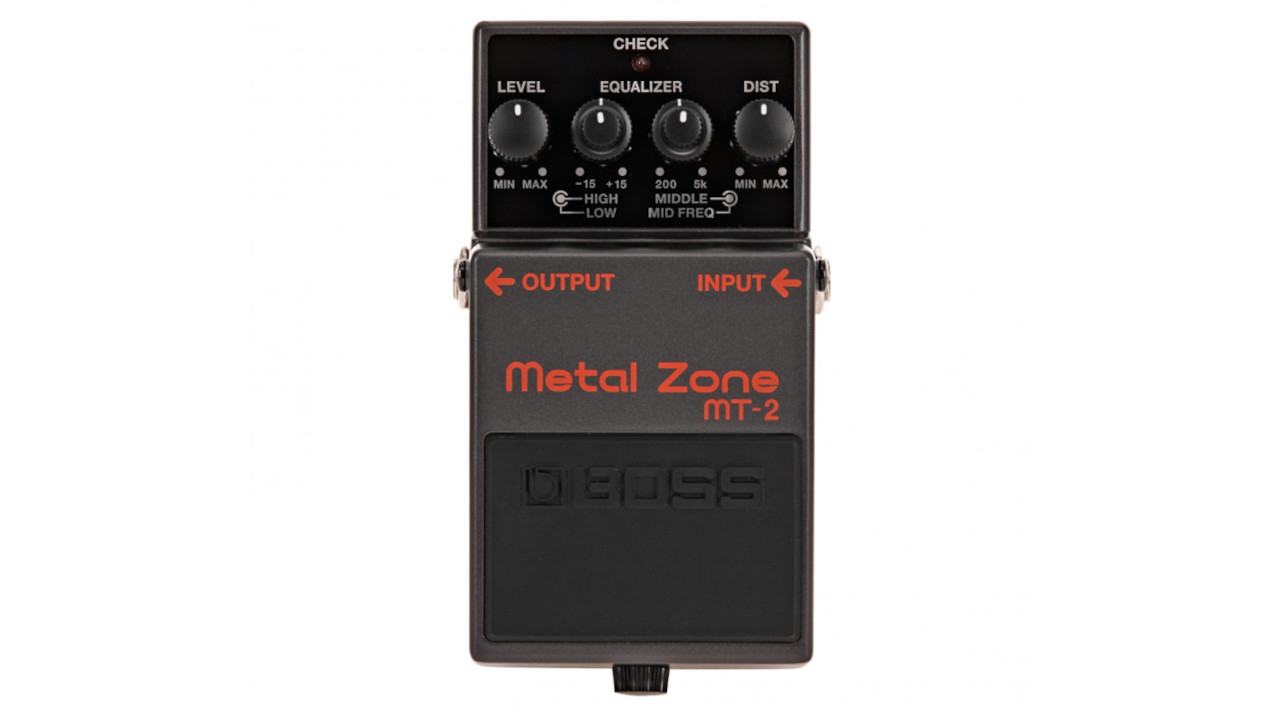
2. Boss MT-2 Metal Zone
Our expert review:
Specifications
Reasons to buy
Reasons to avoid
Much maligned, the Metal Zone was in some ways a victim of its own success. After all, it says 'Metal Zone' on the front - should be plug and play, right?
Picked up by countless aspiring metal guitarists since its release in 1991, the complexity of its EQ section led many to feel cheated or short changed. However, for those that tinkered enough to understand its powerful two-band EQ and variable mids control, it offered an unparalleled level of control for a stompbox.
Even today it stands up, especially after being re-assessed in light of high-profile users like Biffy Clyro's Simon Neil.
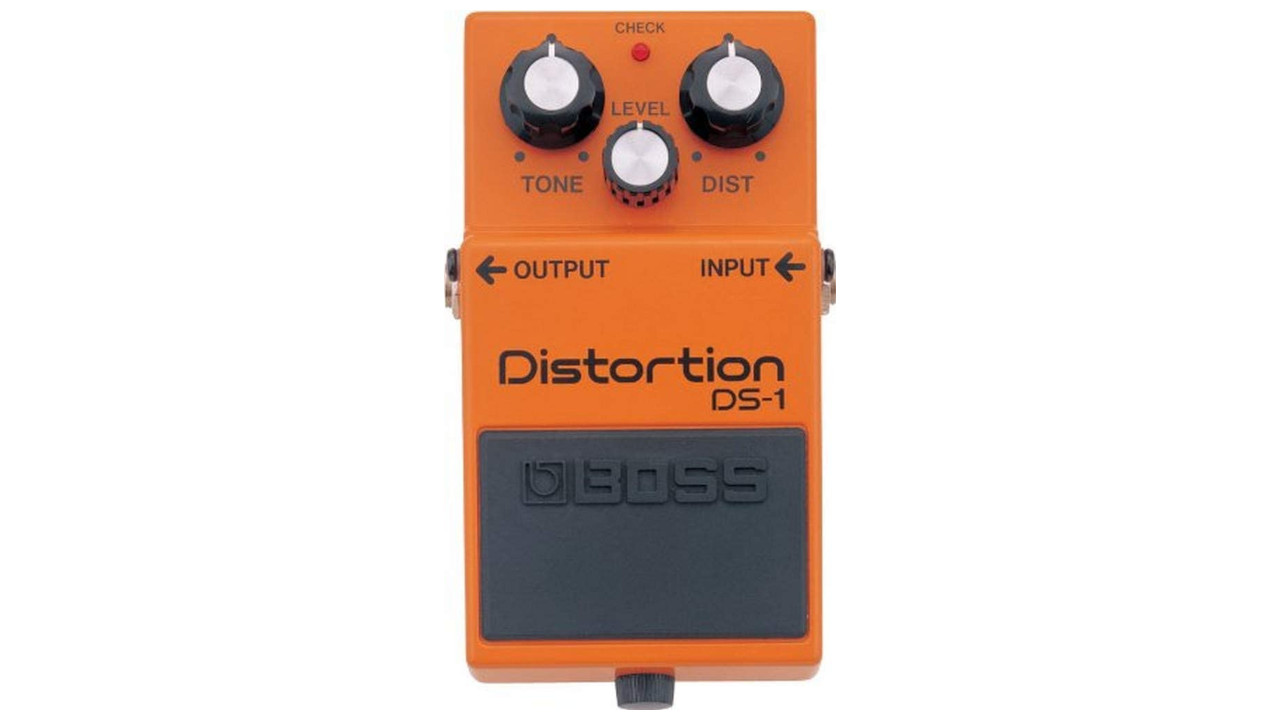
3. Boss DS-1
Our expert review:
Specifications
Reasons to buy
Reasons to avoid
This affordable tangerine box has been the go-to weapon of choice for a slew of big-name artists for many years. Everyone from the poster child of grunge, Kurt Cobain, to the surfing alien himself, Joe Satriani, has utilized this unique sounding distortion to achieve their signature tones - and that's why it's our choice for the best cheap distortion pedal on the market.
We believe Boss owes a lot of the success of this truly iconic pedal to its straightforward layout. With only a trio of controls – level, tone and distortion – it's almost impossible to get a bad sound out of the DS-1. Turn the level up and distortion down and you get a smooth attack, perfect for classic rock. Turn the volume down and dime the gain, and you'll have enough power to melt faces.
Many players are guilty of overlooking the humble DS-1, as its low price can lead to some believing it offers a substandard tone – and that couldn't be further from the truth.
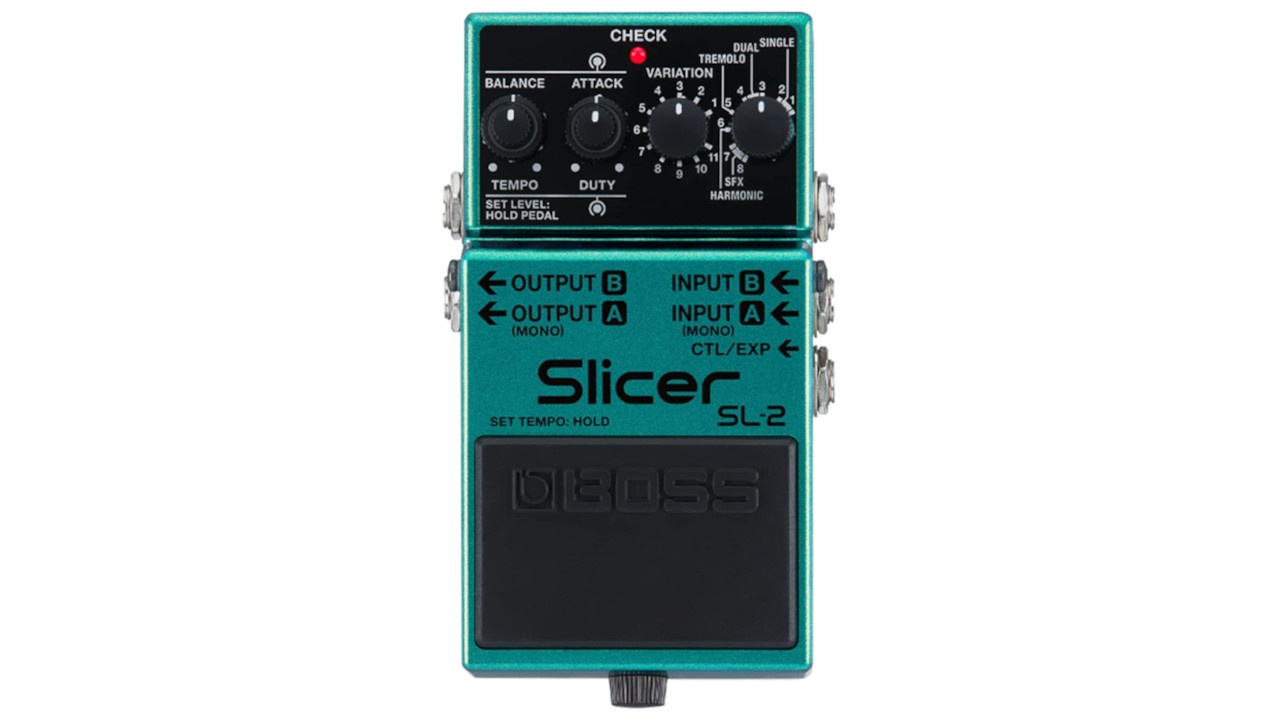
4. Boss SL-2 Slicer
Our expert review:
Specifications
Reasons to buy
Reasons to avoid
The BF-3 Flanger's manual makes reference to 'slicer' effects with the gate/pan mode, and perhaps was the inspiration for the original SL-20.
The SL-20 was a dual-pedal pattern tremolo and pan device which gradually became something of a cult classic. It was discontinued, and has been recently reborn in this new compact format. The compact pedal has most of the same features, but MIDI is over TRS rather than normal MIDI cable.
There's more than 10 pattern presets and several settings that cover pan, tremolo and even a sort of binaural '3D' mode. It's not quite the Roland RSS sound design rack units of old, but it's pretty neat for a compact pedal.
The only real drawback of the Slicer is that it is based on presets with few adjustable parameters, like the SY-1. The issue is that exotic pedals like these tend to attract power users or experimentalists. These are just the sort of players that want to access those controls.
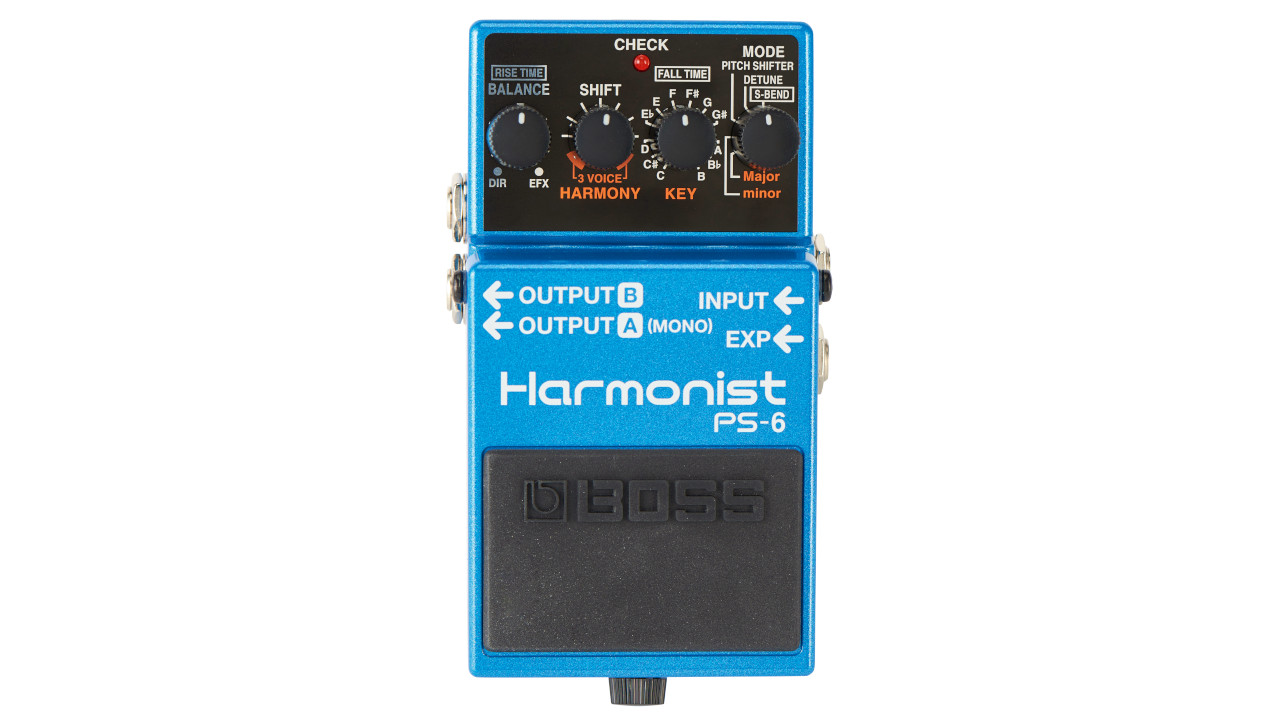
5. Boss PS-6 Harmonist
Our expert review:
Specifications
Reasons to buy
Reasons to avoid
Every pitch shifter has a slightly different timbre, thanks to the algorithms and circuits used by each manufacturer. The PS-series has always had something of a flute-like timbre to our ear when used on upper octaves.
The PS-6 has a host of different harmonisation options, and expression pedal control for that full Whammy experience. Crucially, it's got the S-Bend mode which Digitech would respond to by building the Whammy Ricochet. The S-Bend mode allows you to control the ballistic rise and fall (or vice versa) of a pitch shift, with wonderfully expressive results.
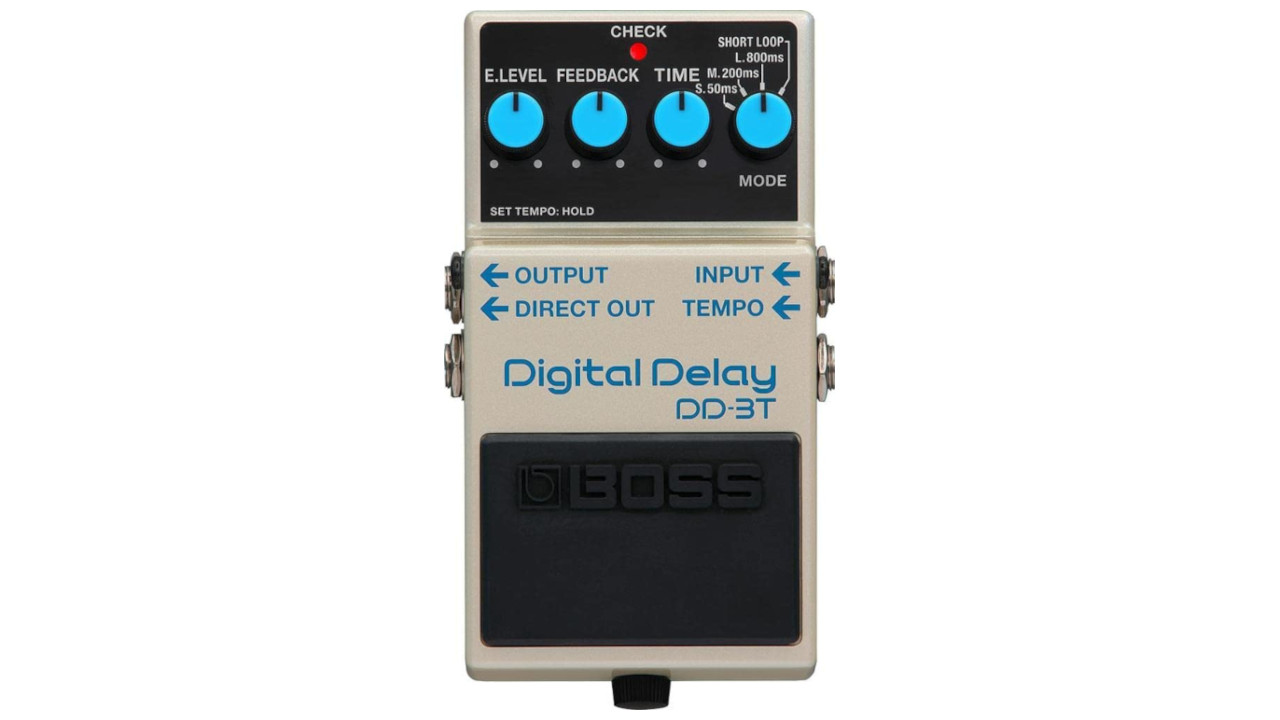
Specifications
Reasons to buy
Reasons to avoid
The DD-3T is the latest reissue of Boss' venerable DD-3 platform, first released in 1986. It's no exaggeration to say that it is the gold standard for digital delay.
Of course the main delay mode is excellent, but it's no one-trick pony. Intended for more slapback-style sounds, the shortest mode on the DD-3 can be used for rapid, machine-gun style stutter sounds, as can its built-in looper, accessible via the Hold mode.
This modern iteration of the DD-3 comes with a tap tempo that can be controlled via external footswitch, making it more akin to the mid-90s DD-5. The only thing that the DD-3 lacks is a reverse mode.
For that, you'll need to get your hands on the DD-8 or its predecessors, the DD-6 and DD-7.
Read the full Boss DD-3T review
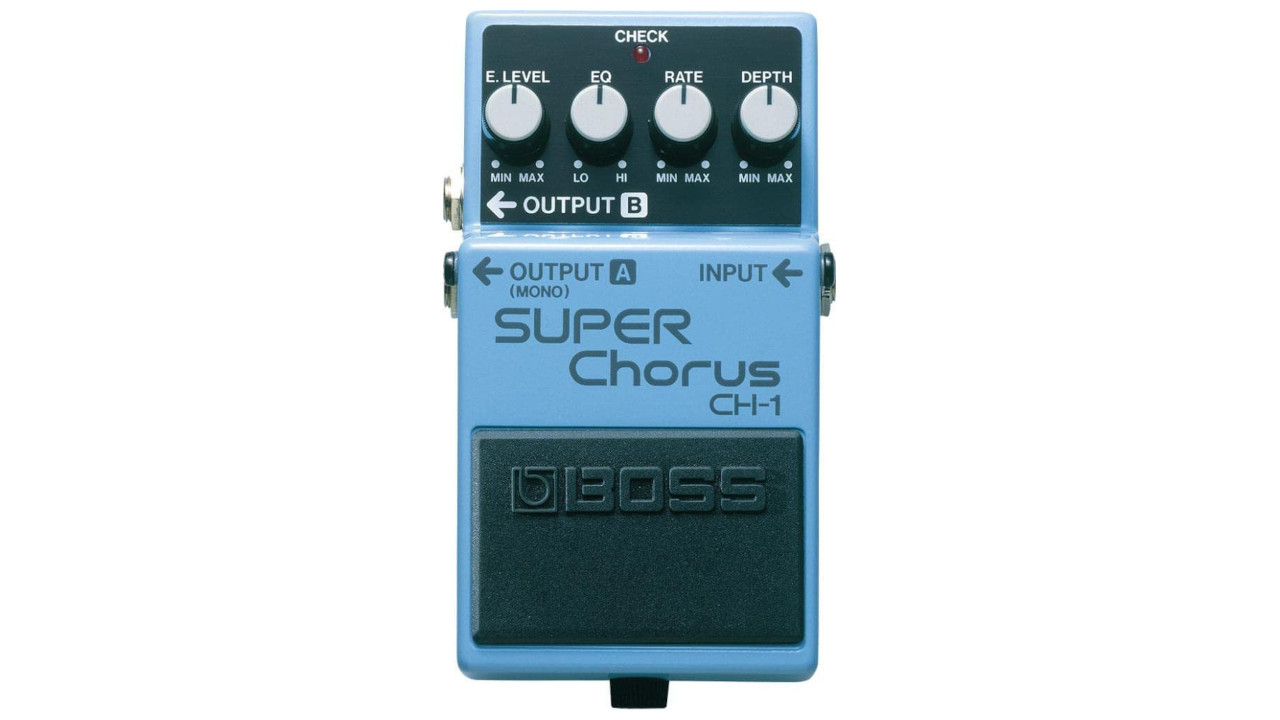
7. Boss CH-1 Super Chorus
Our expert review:
Specifications
Reasons to buy
Reasons to avoid
The Boss CH-1 is yet another stompbox staple. This inexpensive pedal is perfect for bringing a much-needed sense of movement to your tone. For that reason, it has found a place on some pretty famous 'boards over the years.
Favoured for its rich and broad chorus sound, the CH-1 has been spotted at the feet of guitars' greatest heroes, including Zakk Wylde, Jerry Cantrell and Steve Vai, as well as everyone's favourite goth, Robert Smith of The Cure.
Much like other Boss pedals, the CH-1 has a rather basic layout with only four dials to contend with. Effect Level, EQ, Rate and Depth all work in tandem to create myriad chorus sounds, from a subtle doubling to full-on seasick warble.
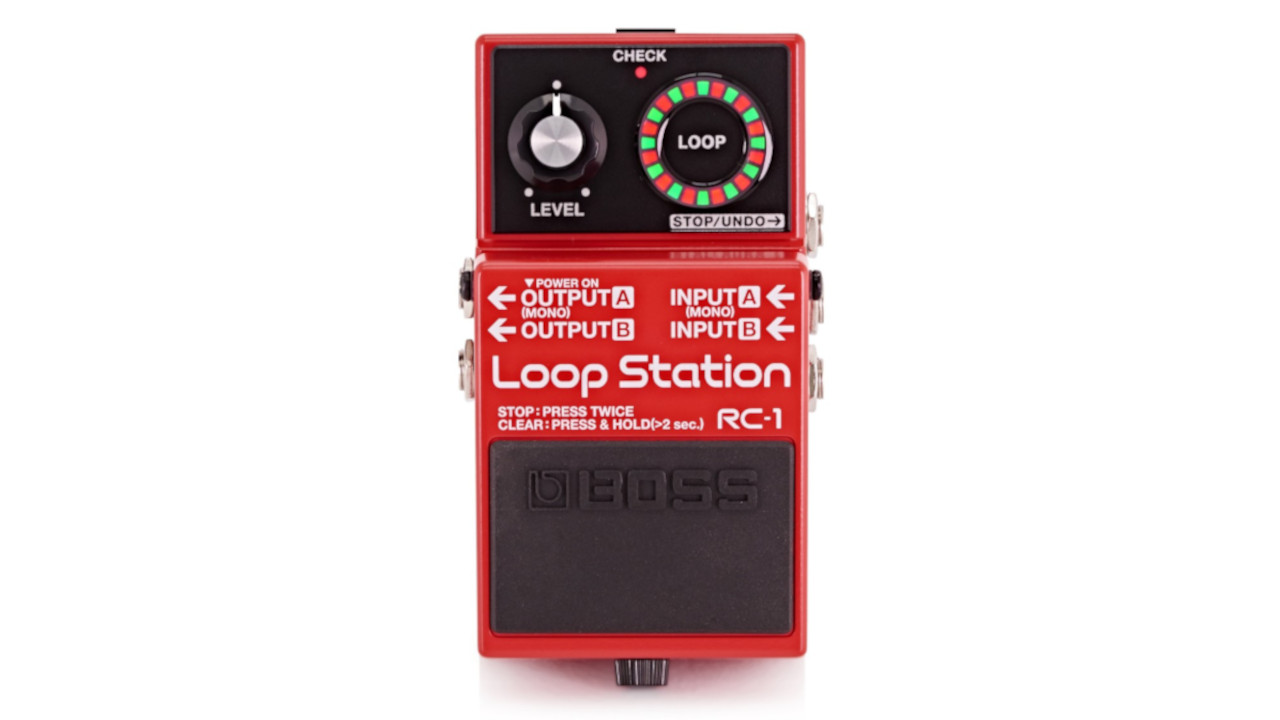
8. Boss RC-1 Loop Station
Our expert review:
Specifications
Reasons to buy
Reasons to avoid
Boss is no stranger to a loop station, but for this list, we thought we'd opt for the most affordable and accessible one in their roster. Not everyone has the confidence to use a looper but there really is no need to worry with the Boss RC-1 Loop Station.
A single foot switch controls every function from stop and start to record and overdubs, while a solitary dial allows you to control the volume of the loop. However, that's not what sets the RC-1 apart from the crowd. The handy LED loop indicator screen gives you a visual representation of where you are in a loop, taking away the guesswork.
Coming with 12 minutes of loop time, there's plenty of time to lay down that epic new riff idea, practice that solo section or just have fun creating ambient beds to play over.
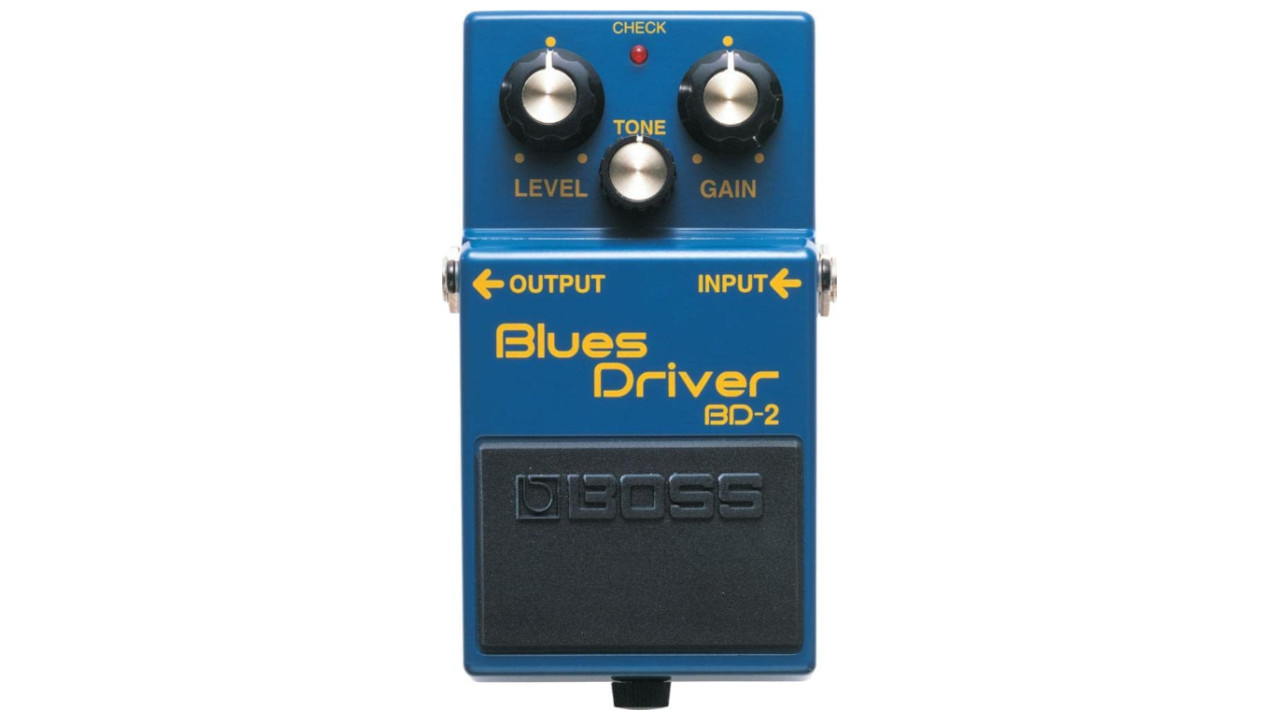
9. Boss BD-2 Blues Driver
Our expert review:
Specifications
Reasons to buy
Reasons to avoid
Though it has superficial similarity to the Tube Screamer and Boss' original OD-1 and SD-1, the Blues Driver is a different beast. Built and released in the mid 90s, it has something of the flavour of a blues pedal re-imagined in the face of grunge bands like Pearl Jam.
It starts off dirty, and in terms of gain range goes all the way up to square-wave clipping when fully open. However, due to its EQ voicing, at higher gain settings it is very treble-heavy, requiring taming at the guitar or amp end.
One of the prevailing theories for the success of the Tube Screamer where the OD-1 and SD-1 stumbled is that its name described perfectly what it did. Perhaps the Blues Driver was an attempt to remedy this. However true, it proved a success, and remains a Boss best seller to this day.
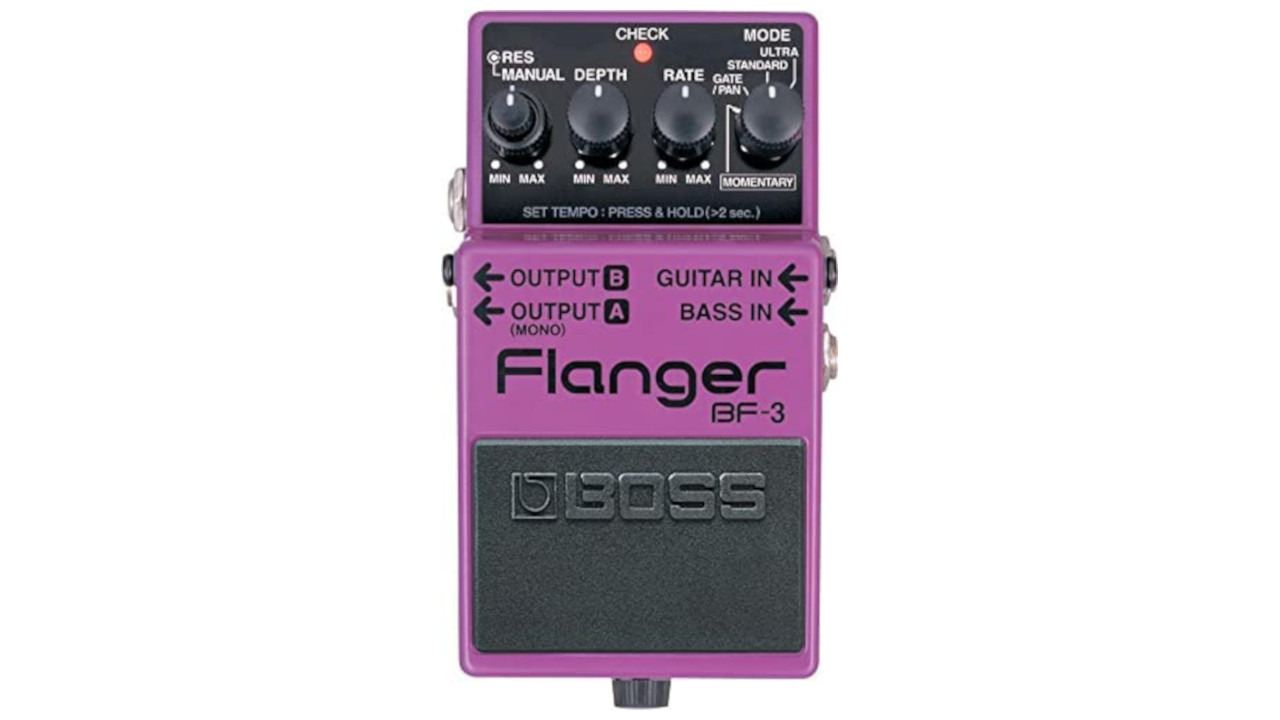
10. Boss BF-3 Flanger
Our expert review:
Specifications
Reasons to buy
Reasons to avoid
The BF-3 looks pretty complex for a flanger pedal, but don't let that put you off. There's a normal flanging setting, as well as a control for changing the severity of the filter. This makes it easy to get both subtle, vintage flange as well as roaring jet-plane flanging, especially when placed after a distortion.
The real gold in the pedal is in the slightly more advanced features. For dynamic live use, it has a momentary activation mode as well as tap tempo. Finally, there's the gate/pan mode, which stereo slices the input into stepped chunks as part of the rise and fall cycle.
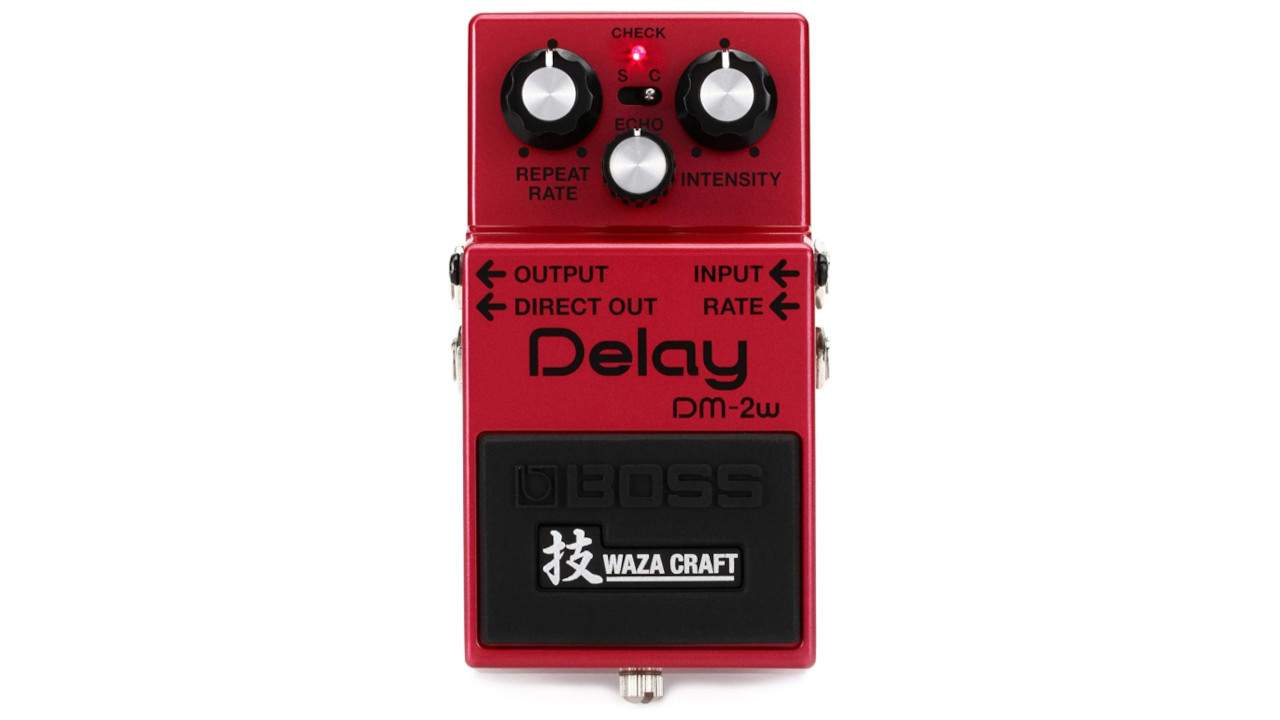
11. Boss DM-2W Delay
Our expert review:
Specifications
Reasons to buy
Reasons to avoid
Analogue delays were an odd half-way house in the history of delay pedals that have found a niche of their own. Offering a way of making an affordable delay that guitarists could have at their feet, bucket brigade (BBD) delay chips were used to make the first compact delay stompboxes.
At the time, the somewhat dark, muddy quality of the BBD chips was seen as less than ideal. With the advent of compact digital delays, some expected the analogue delay to become obsolete. While most units were discontinued, they remained sought after for their gritty, organic tone.
The DM-2W builds on the brilliant original with an optional longer delay time mode. It also adds expression pedal control for space-cadet hijinks.
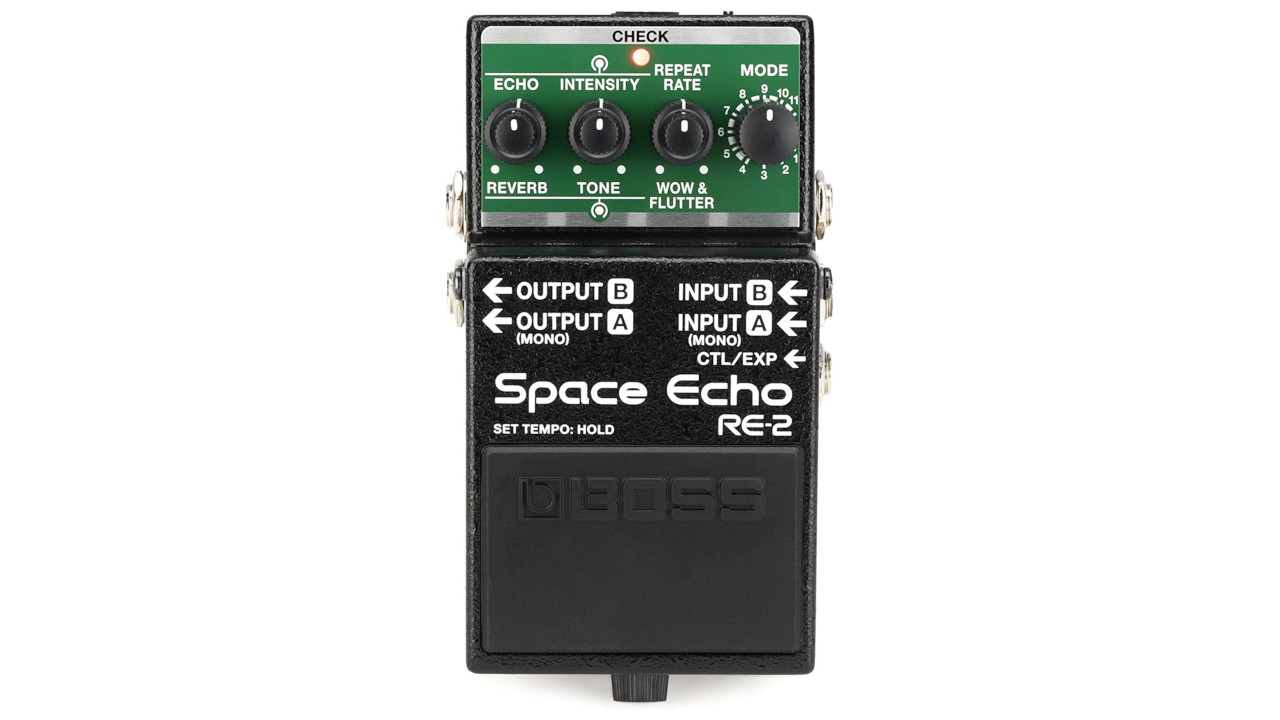
Specifications
Reasons to buy
Reasons to avoid
Another technology that both analogue and digital delays failed to kill off was the tape echo. Though many players replaced their touring kit gladly, tape machines continue to be prized for studio use due to their darker, organic repeats.
With a motor moving physical tape, even the most pristine unit has slight fluctuations in motor speed, and tape age affects the timbre of repeats. This combines to make a series of unique artefacts that were only prized when they were lost.
The RE-2 is the most compact emulation yet by Boss of their parent company Roland's classic Space Echo. It does a decent job of bottling the magic of the original units in a compact form-factor that also has modern conveniences like stereo I/O.
Inspired by a viral photoshop post on Reddit, Boss revealed this unit with almost exactly the same styling to much excitement. Luckily, it's not a case of style over substance, and the tape emulation sounds as good as you'd expect.
Read the full Boss RE-2 Space Echo review
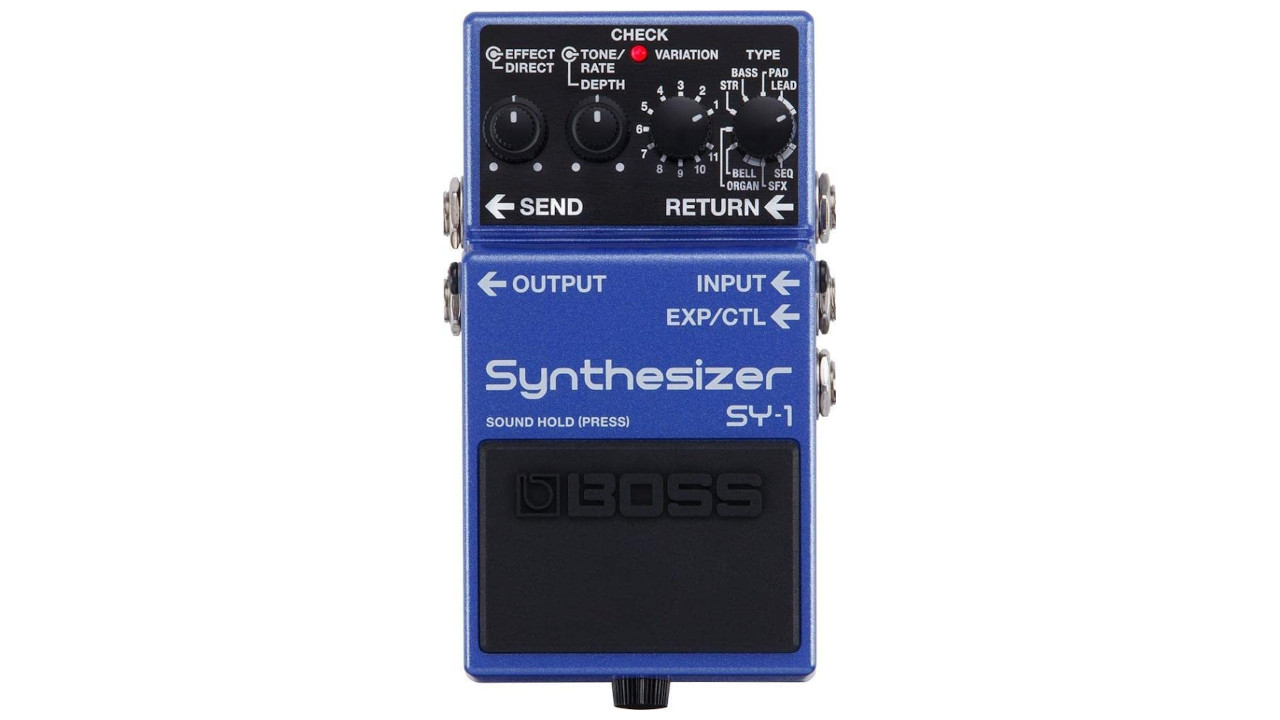
13. Boss SY-1
Our expert review:
Specifications
Reasons to buy
Reasons to avoid
The SY-1 isn't likely to impress the owners of keyboard mono or polysynths too much. However, for simpler lead and bass lines the SY-1 is remarkable given how small and intuitive it is.
There's no need for a dedicated pickup, and there's also the option for adding an expression pedal to further augment its feature set.
For occasional use in a cover band or electronic rock group, it's a powerful sound design tool. For a more fully-featured synthesiser with every parameter accessible, then you will need to investigate one of Boss's larger floorboard synths.
Best Boss pedals: Buying advice
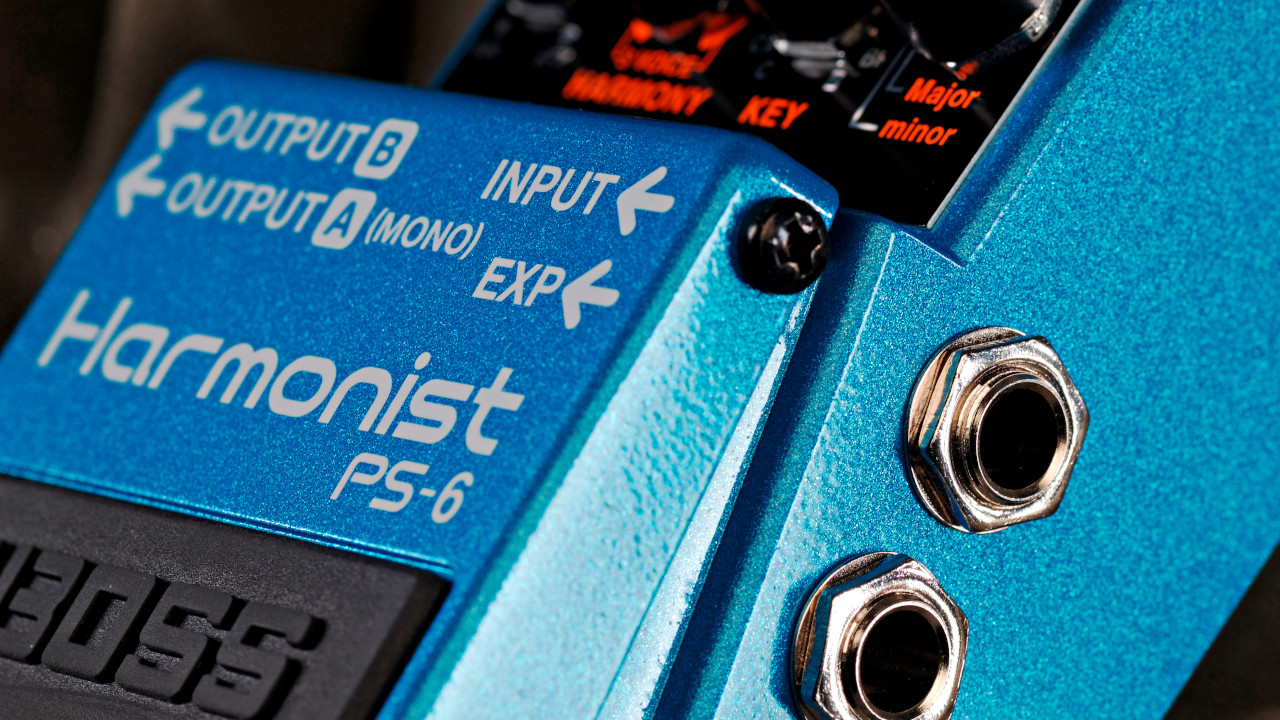
Boss pedals are the most popular stompboxes on the market, selling millions of units since the line began in 1977 with the OD-1. The designs, circuits and ethos have evolved with the times, producing reliably bankable, classic pedals like the DD-3 Delay, and short-lived oddities like the PN-2 Tremolo Pan. The one thing these pedals have in common is their iconic chassis.
So influential are the designs and colours used, that it's not just other pedal makers that use them to identify similar effects. You even see many guitarists involuntarily using the same colours when arranging effected guitars in a DAW, for example.
For Boss aficionados, with this variety in their compact pedal range, there's a lot of hidden gems to try. Even with a single model like the DS-1 or DD-3, Boss have changed the design over the years, as well as switching the country of manufacture. Sometimes these changes are night and day in sound. Sometimes they're perhaps more imagined than real. Still, it all adds to the history and culture around these pedals.
While it's true that Boss pedals have generally aimed for mass-market appeal, at any given time there's always a couple of oddball designs in the range. Moreover, even on their most straightforward designs there's usually a mode that allows for surprisingly out-there sound design.
More than that, a pedal is only what you make of it as a player. You only have to look at the pedalboard of a player like Tom Morello to see that taking something quite ordinary and making it extraordinary is the mark of a creative guitarist.
Related buying guides
You can trust Guitar World
- The best Looper pedals: Top choices for playing live or jamming
- Kick it up a notch with the best pedalboard power supplies
- Organise your effects with the best pedalboards
- Add to your playing options with the best guitar tuners
- Stock up for less with the best cheap guitar pedals
- Do everything with the best budget multi-effects pedals
- Explore more sounds with the best reverb pedals for guitar
All the latest guitar news, interviews, lessons, reviews, deals and more, direct to your inbox!
Alex Lynham is a gear obsessive who's been collecting and building modern and vintage equipment since he got his first Saturday job. Besides reviewing countless pedals for Total Guitar, he's written guides on how to build your first pedal, how to build a tube amp from a kit, and briefly went viral when he released a glitch delay pedal, the Atom Smasher.
- Daryl RobertsonSenior Deals Writer

